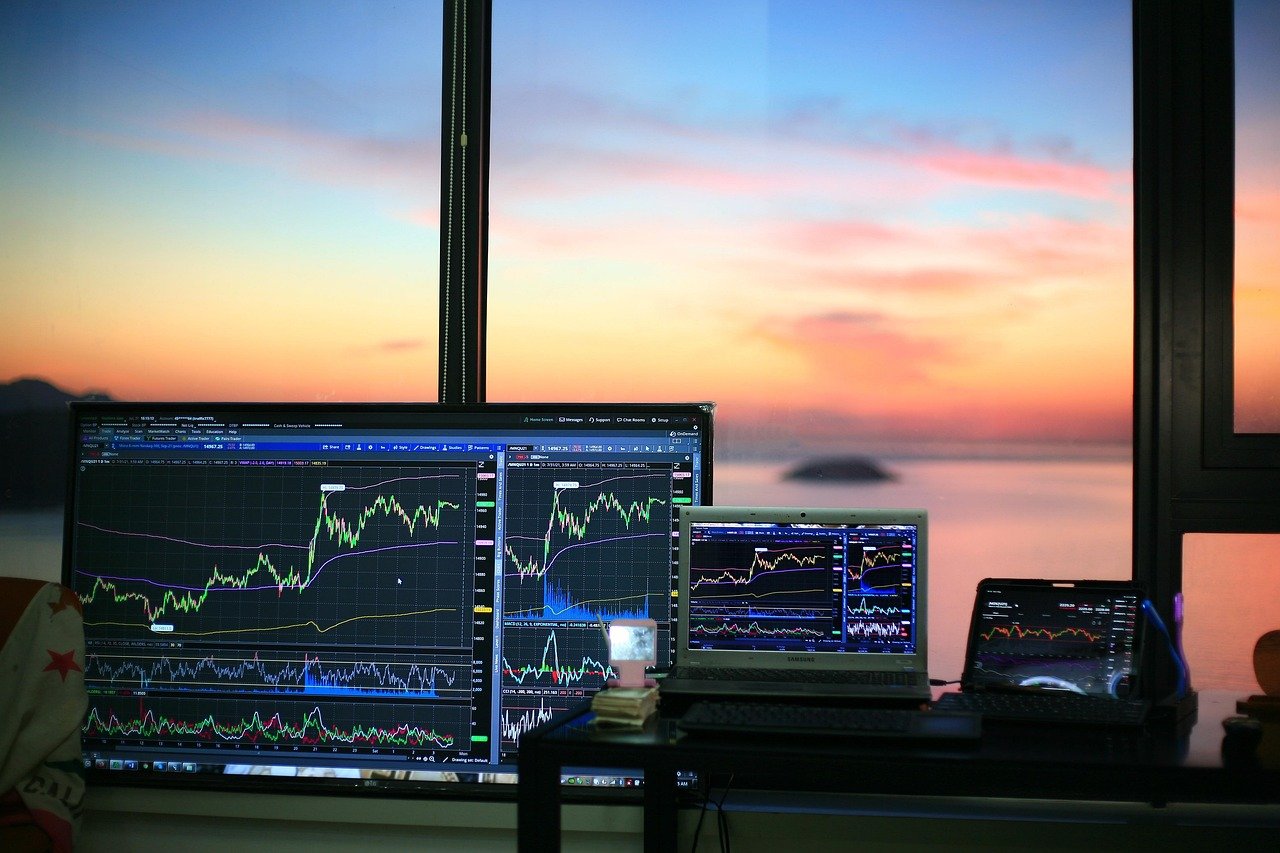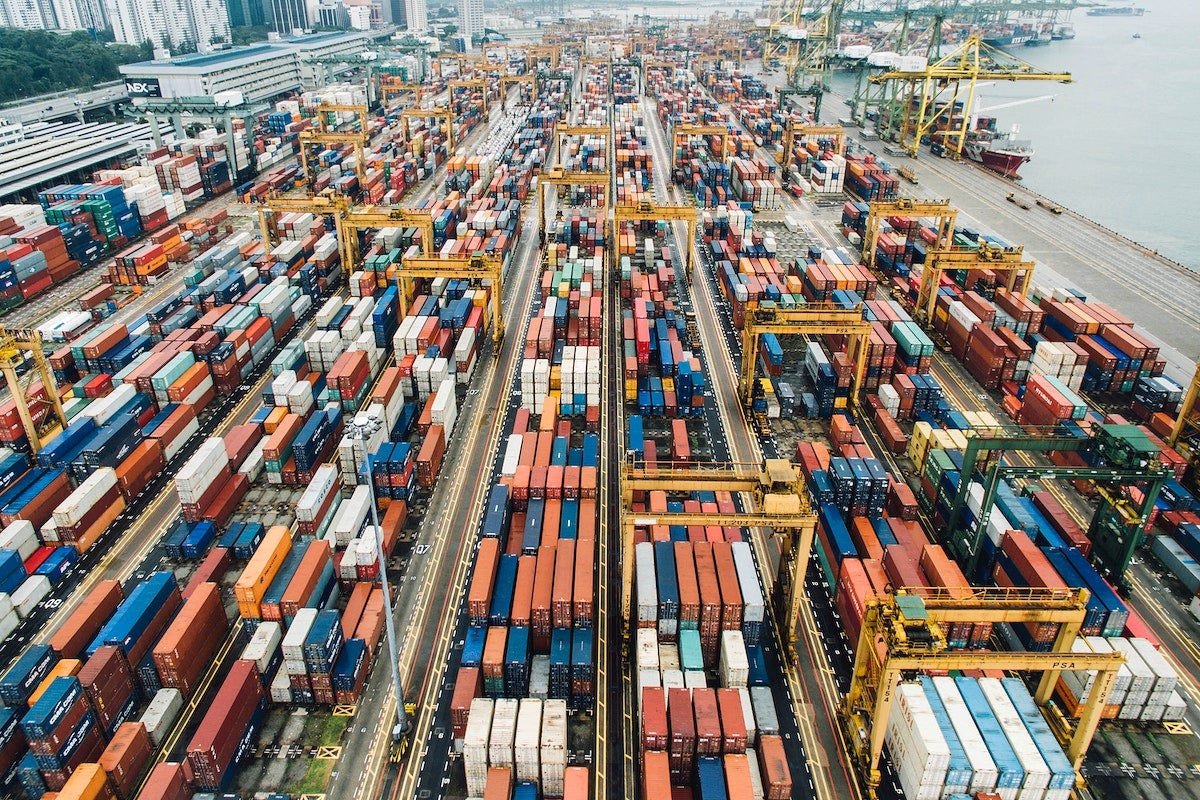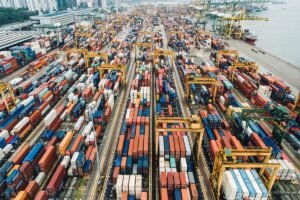Wall Street Meltdown Echoes in Asia: Markets Plunge
- Asian markets plunged due to President Trump’s tariff hikes, with Tokyo’s Nikkei 225 index losing nearly 8%.
- Major losers included Mizuho Financial Group and Mitsubishi UFJ Financial Group, with shares sinking 10.6% and 10.2% respectively.
- Chinese markets also tumbled, with Hong Kong’s Hang Seng dropping 12.4% and the Shanghai Composite index losing 8.4%.
- Market observers predict more wild swings in the future, with a short-term resolution to the trade war appearing unlikely.
Asian markets experienced a significant plunge on Monday, following the Wall Street meltdown on Friday. This was a direct result of U.S. President Donald Trump’s tariff hikes and the subsequent backlash from Beijing. The Nikkei 225 index in Tokyo was one of the hardest hit, losing nearly 8% shortly after the market opened. Futures trading for the benchmark was briefly suspended, and it closed down 7.8% at 31,136.58.
U.S. futures also signaled further weakness. The future for the S&P 500 lost 3.7%, while that for the Dow Jones Industrial Average shed 2.9%. The future for the Nasdaq lost 4.7%. On Friday, the worst market crisis since COVID slammed into a higher gear as the S&P 500 plummeted 6% and the Dow plunged 5.5%. The Nasdaq composite dropped 5.8%.
Late Sunday, Trump reiterated his resolve on tariffs. Speaking to reporters aboard Air Force One, he said he didn’t want global markets to fall, but also that he wasn’t concerned about the massive sell-offs, adding, “sometimes you have to take medicine to fix something.”
Major Losers and Market Reactions
Among the biggest losers was Mizuho Financial Group, whose shares sank 10.6%. Mitsubishi UFJ Financial Group’s stock lost 10.2% as investors panicked over how the trade war may affect the global economy. Rintaro Nishimura, an associate at the Asia Group, said, “The idea that there’s so much uncertainty going forward about how these tariffs are going to play out, that’s what’s really driving this plummet in the stock prices.
Chinese markets, which often don’t follow global trends, also tumbled. Hong Kong’s Hang Seng dropped 12.4% to 20,022.82, while the Shanghai Composite index lost 8.4% to 3,059.94. In Taiwan, the Taiex plummeted 9.7%. Kenny Ng Lai-yin, a strategist at Everbright Securities International, suggested that the big movements might reflect some catching up from Friday’s declines.
E-commerce giant Alibaba Group Holdings fell 9.9% and Tencent Holdings, another tech giant, lost 13%. South Korea’s Kospi lost 5.6% to 2,328.20, while Australia’s S&P/ASX 200 lost 4.2% to 7,343.30, recovering from a loss of more than 6%.
Impact on Global Economy and Future Predictions
Asia is especially dependent on exports, and a large share goes to the United States. Gary Ng of Nataxis expressed concern about the impact and potential crises for small and trade-dependent economies, emphasizing the need for Trump to reach deals with most countries soon, at least partially.
Oil prices also sank further, with U.S. benchmark crude down $1.74 at $60.25 per barrel. Brent crude, the international standard, gave up $1.75 to $63.83 a barrel. Exchange rates also gyrated. The U.S. dollar fell to 145.52 Japanese yen from 146.94 yen. The yen is often viewed as a safe haven in times of turmoil. The euro rose to $1.1000 from $1.0962.
Market observers expect investors will face more wild swings in the days and weeks to come, with a short-term resolution to the trade war appearing unlikely. Nathan Thooft, chief investment officer and senior portfolio manager at Manulife Investment Management, said more countries are likely to respond to the U.S. with retaliatory tariffs. Given the large number of countries involved, “it will take a considerable amount of time in our view to work through the various negotiations that are likely to happen.”














Post Comment